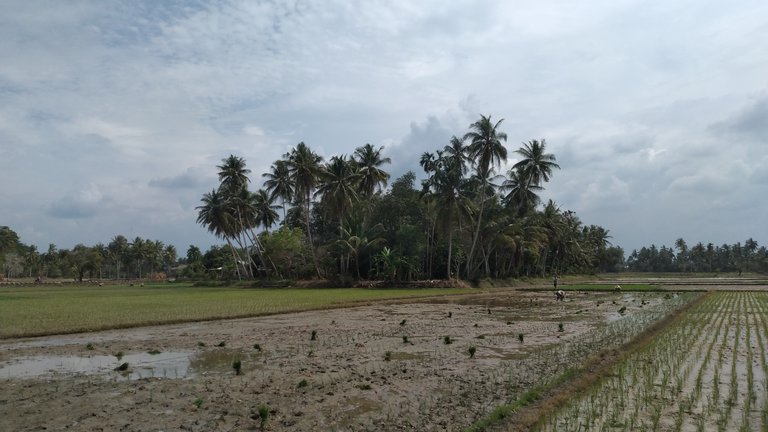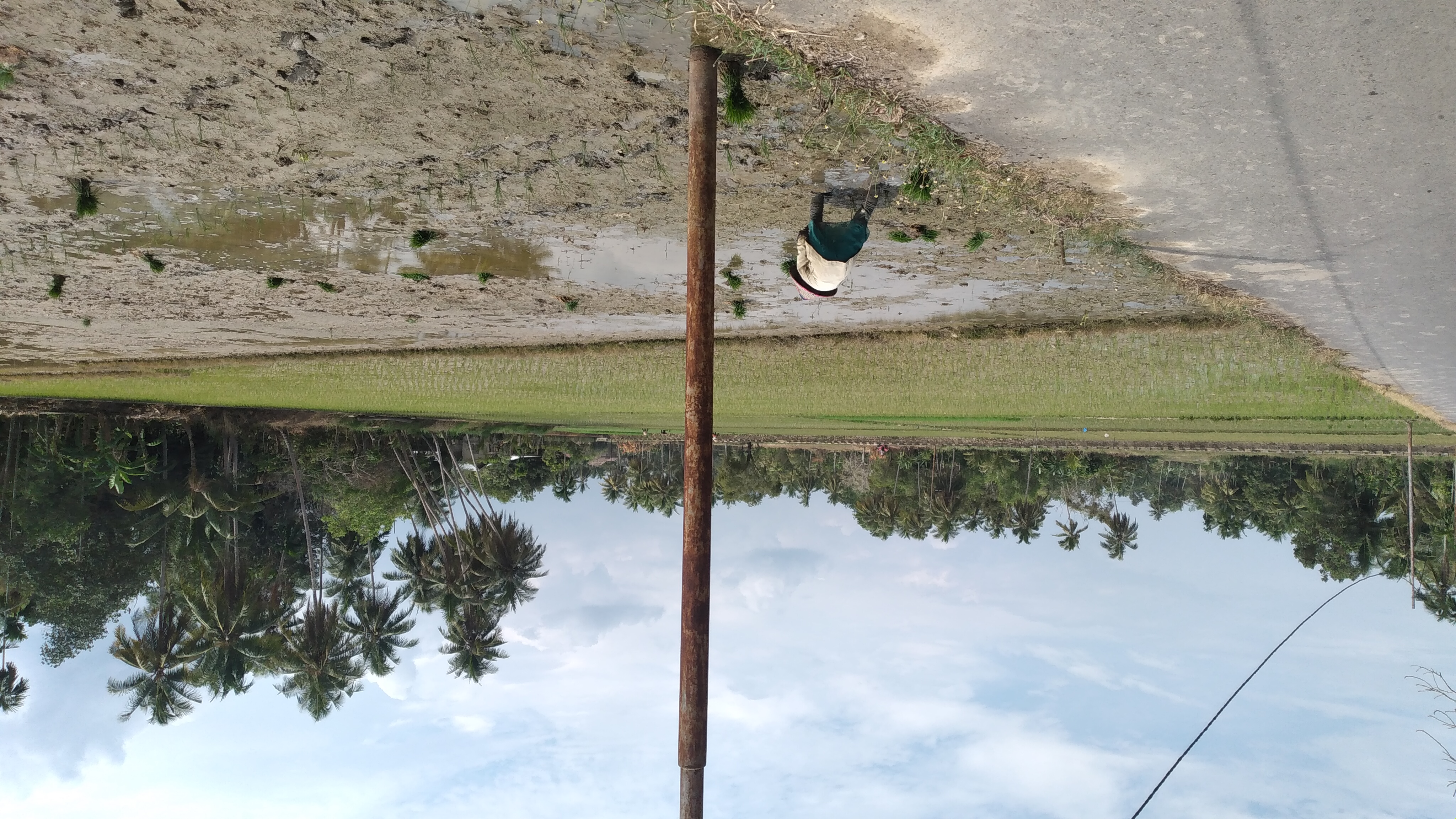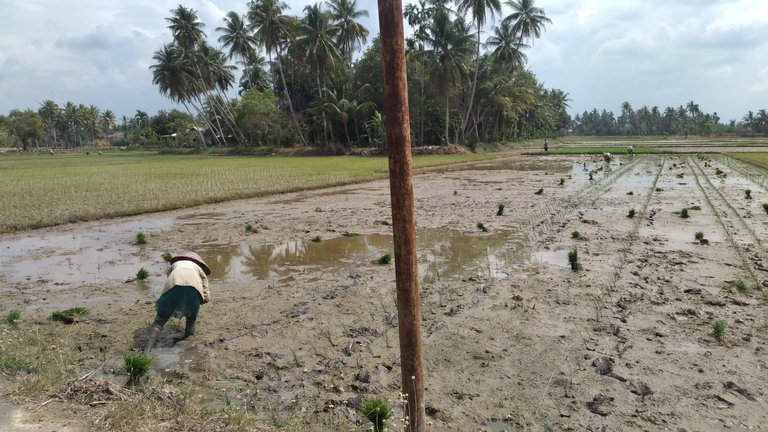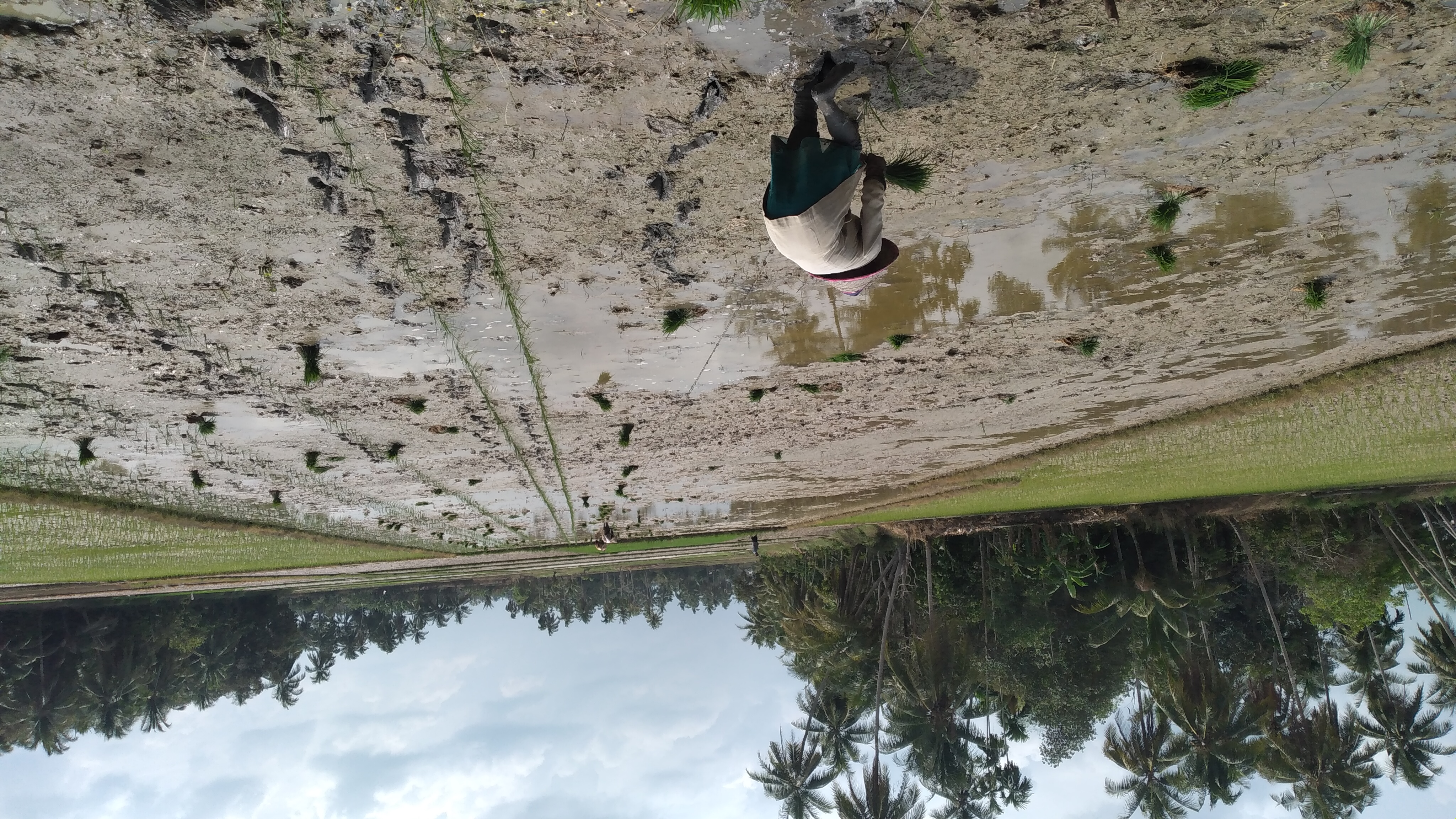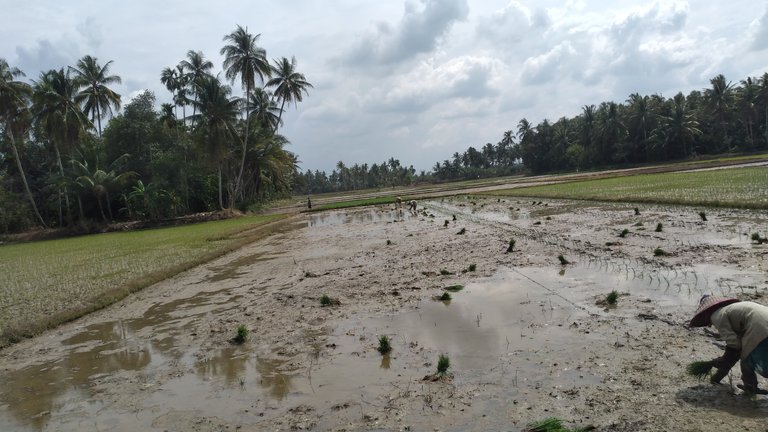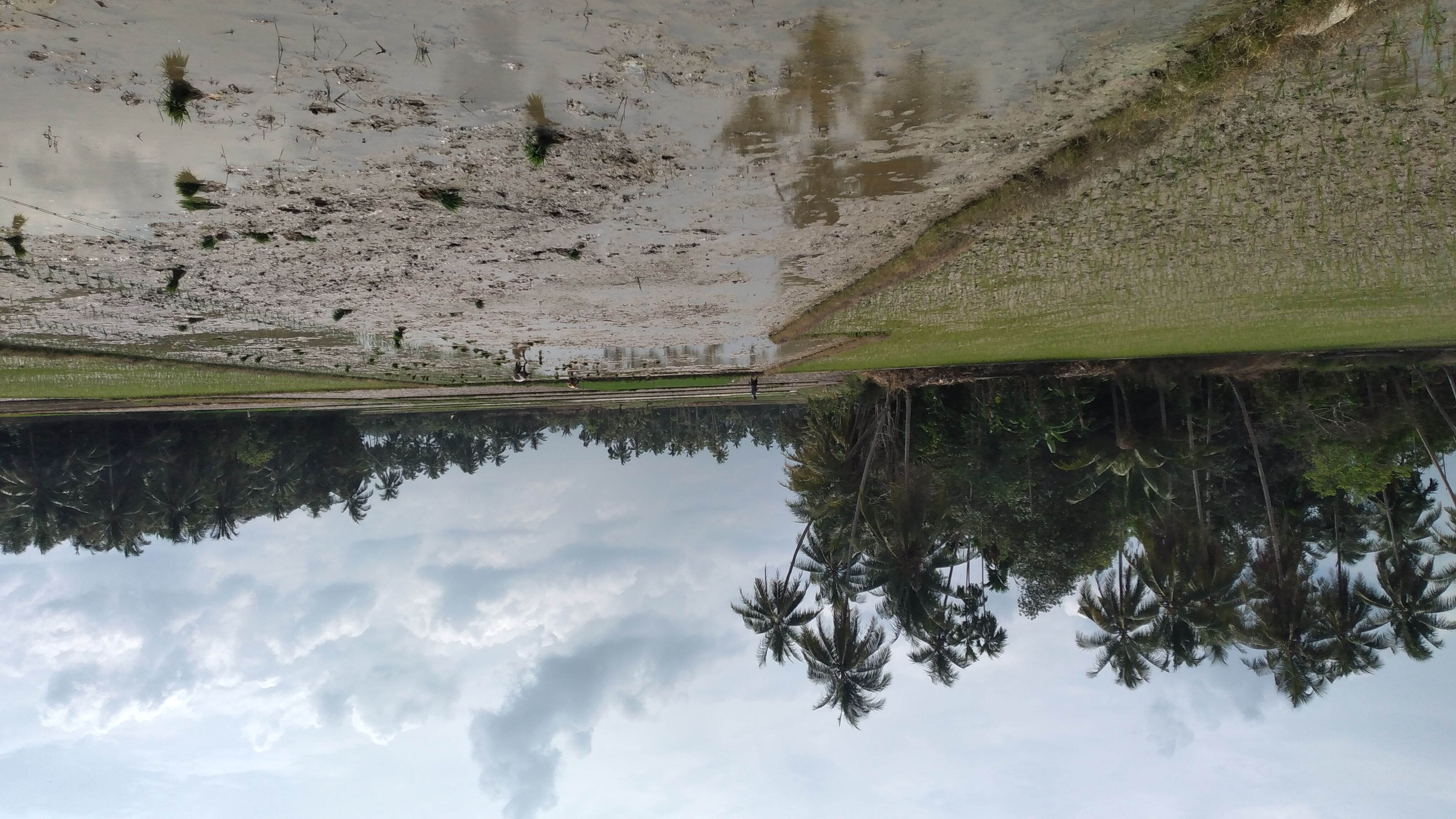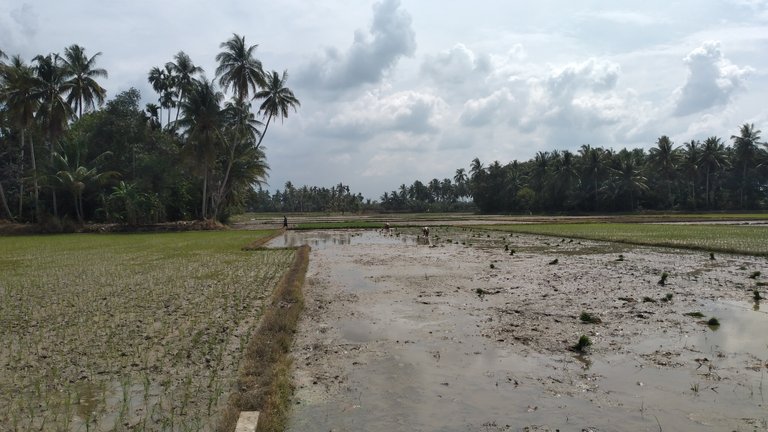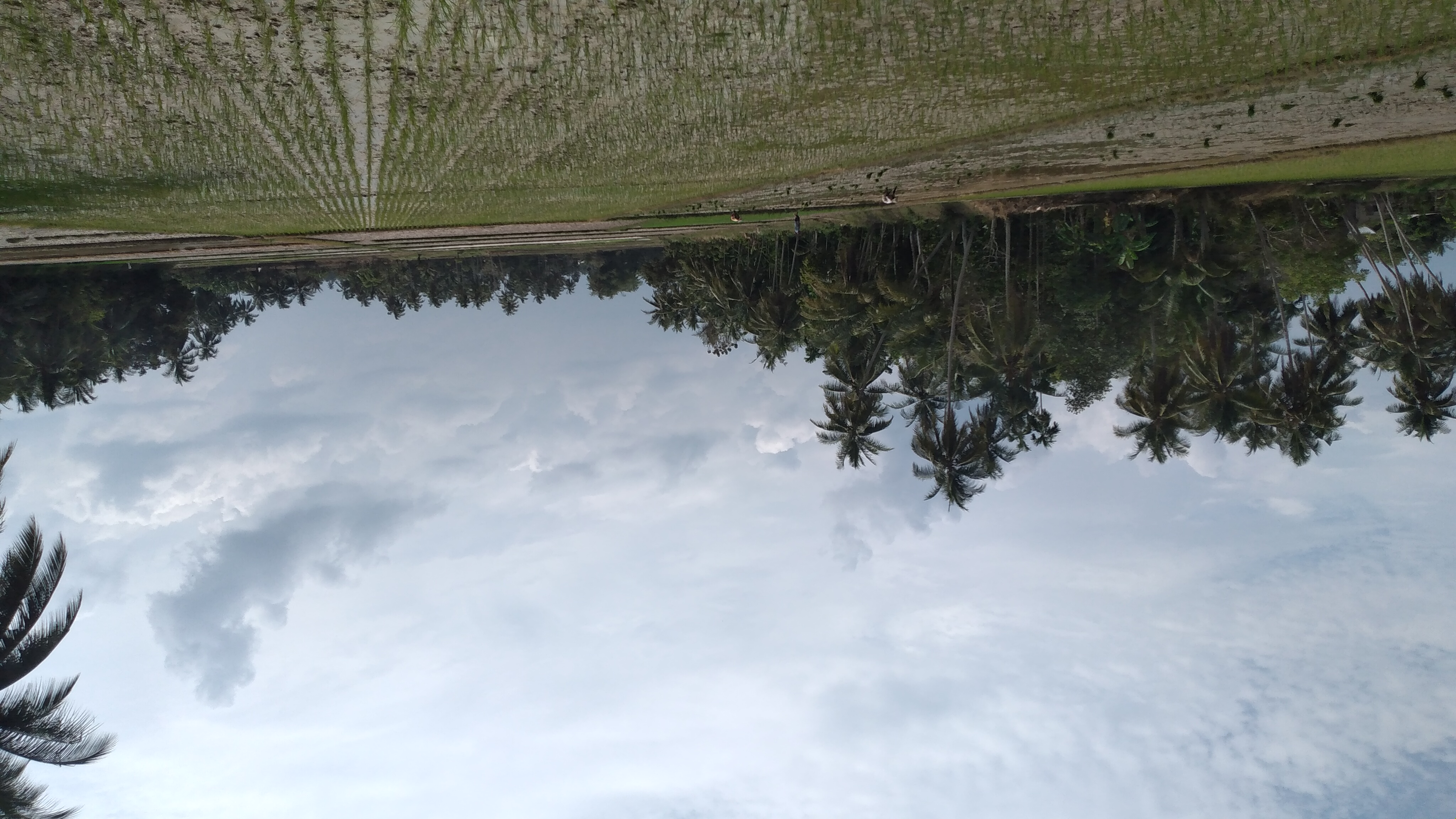
When we look at planted rice fields, of course we will see rows of rice plants that are straight and parallel. So planting rice uses the tandur technique.
So, why do you have to step back to plant rice? According to a number of sources, the method of planting rice with a bent body position and walking backwards was introduced by Japan.
Before farmers were familiar with tandur, they would usually plant rice randomly. This has an impact on low levels of rice production.
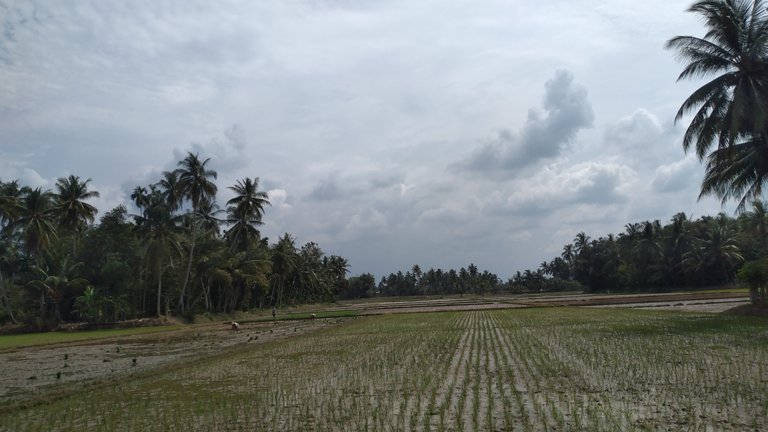
Seeing this, Japan taught how to plant rice, known as tandur. This method is used so that the rice seeds are not stepped on by the farmers who plant them.
Apart from that, grafting is carried out with the aim of ensuring that the rice plants are planted straight and parallel. When planting rice backwards, farmers can see and adjust the rows of seeds.
How to plant it with your thumb, index finger and middle finger holding the base of the stem near the root of the seed and then sticking it into the soil. After that the farmer stepped back to repeat the same thing.
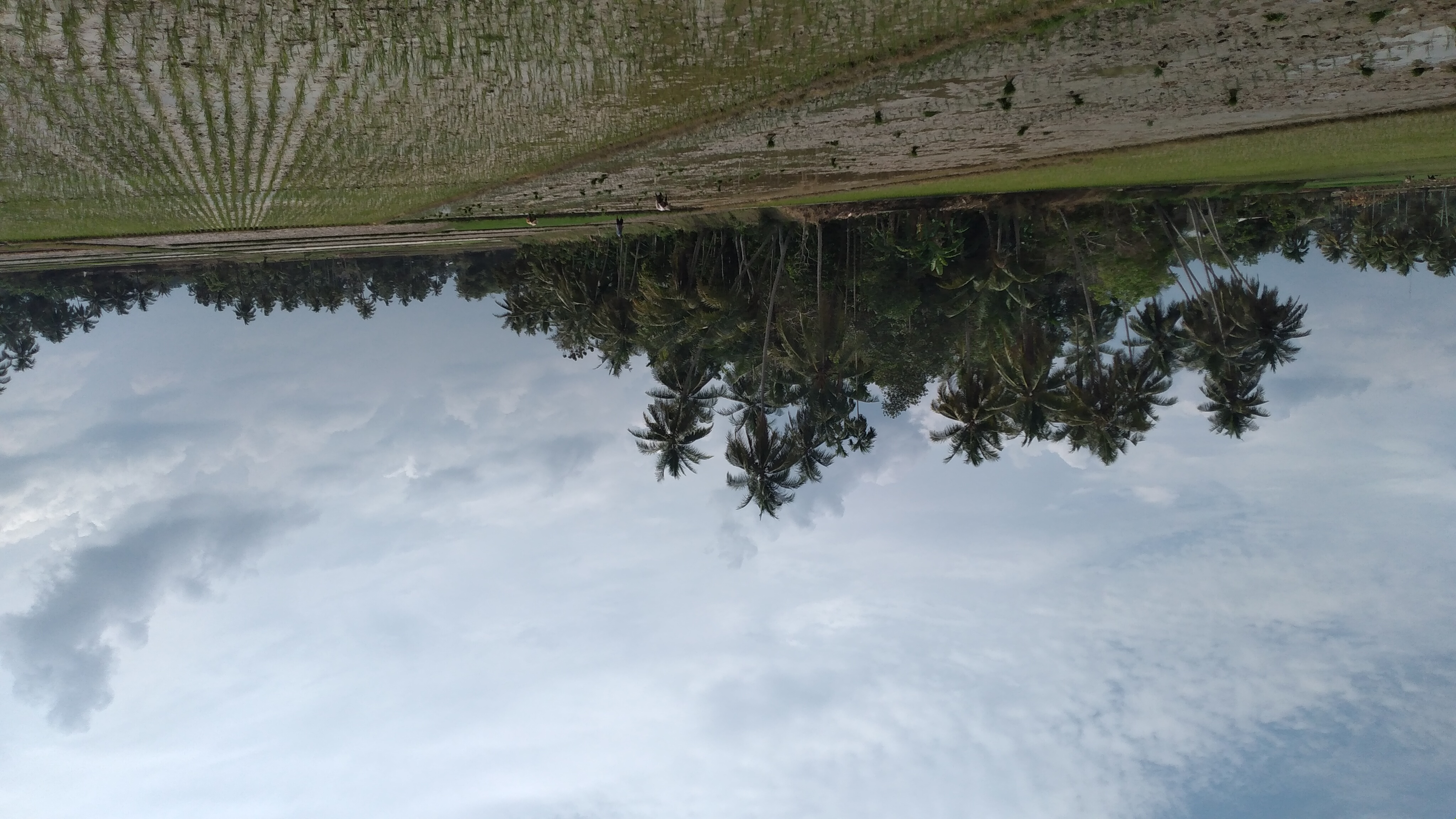
Rice seeds are planted between the intersection of straight lines that extend and cut across a plot of rice field. The rice also looks neat and lined up according to the lines.
This tandur habit still persists today. It is not surprising to see farmers planting rice with backward steps.
